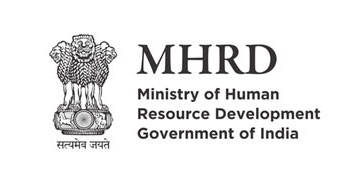
Dr. Aparna Negi
One can easily see Mantra in Bhoti language OM MANI PADME HUM; OM MANI PADME HUM (ཨོཾ་མ་ཎི་པདྨེ་ཧཱུྃ) is a well-loved Buddhist Mantra commonly translated as, “The Jewel is in the lotus” etched inside the back mirror of the car/ other vehicles. It is because every one of the Buddha’s teachings is believed to reside within this one powerful mantra. It is repeated over and over again to invoke the loving and unconditional qualities of compassion. It shows the beauty of the language Bhoti. It is hard to predict and we are in doubt about the sustenance Bhoti language in the future. Certainly, the best possible way to avert its disappearance is to preserve the languages while its and languages are still intact. Bhoti language was formed in 7th century in Tibet by Thonmisambhota. Bhoti language originated from Sanskrit language. Sanskrit language was one of the most crucial languages of ancient India. Lord Buddha preached his sermon mostly in Sanskrit language. There are fourteen vowels and thirty-six consonants in Sanskrit language. Only four vowel and twenty-four consonants were taken from Sanskrit language including ‘Aa’ which is a vowel in Sanskrit but put it in consonant in Bhoti. In addition, six more letters of consonants in Tibetan were found from Tibet itself and finally there are thirty consonants and four vowels. After inventing the alphabets of Bhoti language Thonmisambhota wrote eight main Tibetan grammar books but due to constant changes in the Tibetan society six of them were lost forever. The remaining two are Sumchupa and Takjukpa. Therefore, we have to learn this grammar book for the preservation of our great culture and language.
Language is not only a medium of communication but also reflects the culture and identity of a particular community. For instance, Punjabi language reflects Punjab, Pahari language representing Himachal and parts of western Himalayan regions, Kashmir language representing Kashmir and many more regional languages not only representing their culture and identity but also their territories. In India, though only 22 languages have been recognised by the constitution of India, there are many other languages spoken in different parts of the country. When the constitution came into being, there are only 14 languages recognised as national languages; but with the passage of time, certain amendments carried out in the constitution, and currently there are 22 languages recognised. The 8th schedule of the constitution contains the major languages of the country. Recently, Bodo, Dongri, Maithili and Santhali were added to it by the 92nd amendment act of 2003. However, the long-standing demand for the recognition and inclusion of the Bhoti language in the 8th Schedule has not been met.
Bhoti language is spoken across the regions of Ladakh in J&K, some parts of Tibet up to Tawang in Arunachal Pradesh. Bhoti is not only spoken by Buddhists but also widely accepted by some other religious people. The central institute of Indian Language (CIIL), Mysore, conducted a survey in 2008 regarding Bhoti language spoken in the Himalayan areas, and have strongly recommended to the government of India to recognise Bhoti as a language to be included in the 8th schedule. The people of the Bhoti speaking regions face various challenges, especially when they face competitive exams. The main reason is that the competitive exams in which one has to choose one of the 22 languages in the 8th schedule, because Bhoti is not an option, they cannot cope up. I hope with सबका साथ सबका विकास, सबका विश्वास और सबका प्रयास Bhoti language will be included as 23rd language in the 8th schedule of Indian Constitution. Here I would like to add a few words:
आओ चलें यूं चलें डगर सफर एक हो हम जब चलें
व्यायाम व्यायाम है आनन्द का नाम है शक्ति है तन की मन का आराम है
आओ चलें यूं चलें डगर सफर एक हो हम जब चलें
सारे के सारे हम खेल के खिलाडी जो नियम के पक्के वो सबसे अगाड़ी
आओ चलें यूं चलें डगर सफर एक हो हम जब चलें
According to Buddhism, the worldly environment came into being due to the collected or concordant karma of whole worldly beings. Therefore, it is certain that Ladakh came into being due to the shared karma of whole Ladakhi people.
Bhoti has rich synonyms in noun, verb, adjective etc. The Buddhist studies department aspires to make our center and activities available to all, regardless of religion, spiritual tradition, culture, ethnicity, race, gender or mental abilities. Further, the center for Buddhist studies aspires to create a wakeful society of kindness, generosity and courage within our homes, our community and in the world.
With a view to undertaking study and research the Bhoti language, Buddhist history, culture and society and Bhoti texts available in Buddhist monasteries. The Bhoti department was set up in 1987 which has later been re-christened center for Buddhist studies vide notification No.3-1/76-HPU (Genl) Vol-Vi, dated: Shimla-05, 18th oct., 1997.
At present, the following curricula are transacted at the center for Buddhist studies: -
One year certificate course in Bhoti language;
One year Diploma course in Bhoti language;
One year Advanced Diploma in Bhoti language.












